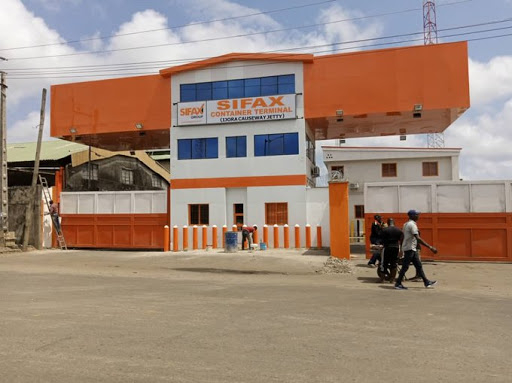SEREC recommends ways to recover N130 billion yearly
The persistent operations and expansion of an organised extortion network by “Camp Boys” or “Area Boys”, along Nigeria’s port access corridors and trade routes, are costing the country about N7.6 trillion yearly and undermining trade facilitations.
These camp boys, an informal extortion cartel often deployed by security operatives at checkpoints on the international trade route, operate openly along the Lagos–Abidjan corridor and have expanded across the Eastern port routes of Onne, Bonny, Warri, Port Harcourt, and Calabar.
The Sea Empowerment and Research Centre (SEREC) disclosed this in a detailed position paper signed by the Head of Research, Dr Eugene Nweke, titled: ‘Persistent Menace of “Camp Boys” (Kerebe/Area Boys): An Organised Extortion Network Undermining Trade Facilitation Along The Port Access Corridors, Lagos–Abidjan Trade Route, and Eastern Port Axis.’
SEREC, having closely monitored the situation through field intelligence, stakeholder interviews, and industry data, revealed that inefficiencies, illegal levies, and extortion along logistics corridors cost Nigeria between N2.5 trillion and N7.6 trillion yearly, citing independent economic analyses by PricewaterhouseCoopers (PwC), the Nigerian Ports Authority (NPA), and the Nigerian Shippers’ Council (NSC).
The paper linked corridor extortion to increased cargo diversion to neighbouring ports in Tema, Cotonou and Lomé, demurrage, fuel wastage, and loss of competitiveness within the Lagos–Abidjan trade corridor and other regional routes, costing Nigeria over N130 billion in Customs and port-related revenue yearly
The activities of the camp boys are not hidden as they operate violently to trade trucks and passenger vehicles without minding the consequences to human life.
When The Guardian visited the Seme border recently, about 64 checkpoints were stationed by security operatives with not less than five camp boys attached to one, as they stopped vehicles in high motion to collect illegal fees before passage.
According to SEREC’s report, drivers who resist are harassed, assaulted, or delayed, while truck operators and importers pay between N10,000 and N250,000 in illegal levies per trip, resulting in inflated logistics costs and higher consumer prices nationwide.
SEREC noted that these touts reportedly intercept trucks, tankers, buses and even private vehicles under the pretext of collecting security clearance fees, union dues, or road maintenance charges.
This is despite several meetings among the heads of security agencies to reduce the number of checkpoints, which have remained futile; rather, the numbers keep increasing.
Recently, the Customs Area Controller, Seme Area Command, Wale Adenuga, had stopped a looming protest threat by the Badagry communities over multiple checkpoints, harassment of citizens by security agencies and frustration of legitimate trade by security agents.
Adenuga summoned a stakeholders meeting of community leaders, heads of various security agencies, the clearing agents and the Nigerian Embassy in the Benin Republic, to address trade barriers along the Seme borders and the Lagos-Abidjan trade Corridor.
“The checkpoints we have on the roads are too many, it is disgraceful, the Comptroller General of Customs, Bashir Adeniyi, has directed that the checkpoints be reduced, he also said that on no account should anyone delay a legitimate business,” he said.
On the use of camp boys, Adenuga said that Customs have since abolished their use, warning that any officer still making use of camp boys shall be dealt with appropriately.
He also sounded a note of warning to other agencies, saying, “If you don’t have any business to do on that trade road, don’t come there. If any of you refuse to comply, you will be arrested. I have the backing of the CGC, the Inspector General of Police (IGP), and the National Security Adviser (NSA); they are all aware.”
However, these checkpoints still remained with the activities of camp boys getting stronger. One of the community leaders from Apa Kingdom, Joseph Adeoluwayemi Agoro, lamented that the checkpoints, as well as stop and search activities on the trade corridor, are not being done with professionalism.
He also complained about roadblocks mounted by military officers and the air force, noting that while the officers are at sea, they send out the new recruits of camp boys to maltreat people.
Also speaking, the Chairman, Community Development Committee of Badagry West LCDA, Yusuf Bashir Mohammed, said the stakeholders’ meetings are becoming monotonous and have not addressed the multiple checkpoints.
“Every one of our meetings is a repetition of all the same issues, multiple checkpoints, camp boys and so on,” he said.To address the menace, SEREC issued a seven-point action plan urging the Federal Government to implement a nationwide presidential enforcement directive to dismantle illegal checkpoints and expel extortionists from all ports and trade corridors in Lagos, but also in Onne, Bonny, Warri, Calabar and Port Harcourt.
“The government’s enforcement blueprint should cover Onne–Eleme–Port Harcourt axis, Warri–Koko corridor, Bonny–Bodo Road, Calabar–Itu–Uyo route, and the Kano–Nguru–Maiduguri trade line, where similar racketeering activities persist under various guises,” the group stated.
The paper also called for the establishment of a multi-stakeholder corridor taskforce comprising the NPA, Customs, Police, FRSC, NSC, and civil society groups, empowered to monitor routes, arrest offenders and prosecute both extortionists and their enablers.
The paper further recommended a zero-tolerance policy and prosecution of officers or union leaders found aiding the extortion rings under the Economic and Financial Crimes (Miscellaneous Offences) Act.
SEREC urged the deployment of CCTV, drones, and GPS-based tracking systems on all ports and trade corridors to identify illegal checkpoints and the creation of a publicly accessible database of authorised checkpoints to enhance transparency.
The paper further advocated the introduction of a whistleblower protection mechanism for truckers and freight agents to report extortion anonymously, restructuring of the Presidential Port Standing Task Team (PPSTT) to enforce measurable key performance indicators, among others.
According to SEREC, this will reduce transit time by 40–50 per cent within six months of strict enforcement, with a recovery of N130 billion yearly in lost customs and port revenue, as well as renew investor confidence and regional reputation.






